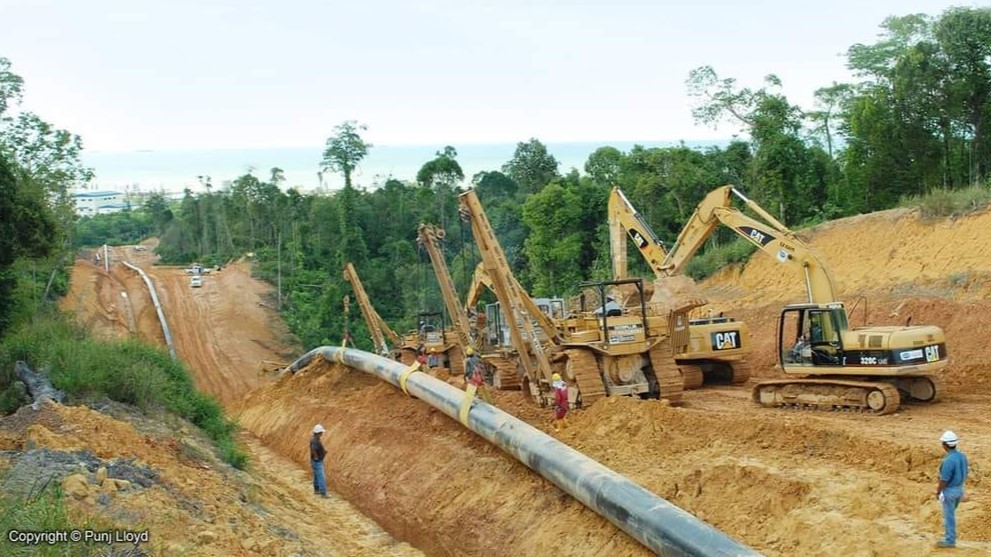PETRONAS’ decision to decommission the Sabah-Sarawak Gas Pipeline (SSGP) has sparked considerable debate, particularly among those who view it as a surprising setback for both the company and the communities it serves.
The 500km pipeline, which cost RM4.6 billion to build and has been operational since 2014, was intended to transport natural gas from Kimanis in Sabah to Bintulu in Sarawak, playing a vital role in Malaysia’s energy infrastructure.
However, its announcement of the pipeline’s decommissioning within the next three years has elicited mixed reactions.
Former minister Baru Bian, for one, has expressed concerns about the decision, questioning the long-term feasibility of such a large-scale project. The decision has highlighted not only the technical and operational challenges faced by Petronas but also the social and economic ramifications for the affected communities in Sabah and Sarawak.
The decommissioning of the SSGP is primarily attributed to safety and operational challenges that have emerged over the years. Despite its initial promise, the pipeline’s route traverses geologically complex and hazard-prone terrain, leading to numerous operational issues, including gas leaks and soil movements.
These incidents, along with a fatal explosion in Lawas, Sarawak, raised significant concerns about the safety of both the workers and the local communities living along the pipeline’s path.
Safety is a fundamental consideration in any energy infrastructure project, and Petronas, as a responsible corporate entity, must prioritise the welfare of its employees and local populations.
Each incident along the pipeline raised alarms about the potential risks, and the decision to decommission the pipeline reflects Petronas’s commitment to preventing further harm.
In this context, the decision to decommission is not an isolated action but part of a broader effort to manage operational risks and mitigate the likelihood of future accidents.
The decommissioning of the SSGP, from an environmental standpoint, reflects the global shift towards sustainable energy. As the world prioritises greener energy solutions, companies like Petronas face increasing pressure to lessen their environmental impact.
The decommissioning process, involving plugging wells, dismantling infrastructure, and land restoration, represents a substantial financial and operational commitment but stresses Petronas’s focus on environmental responsibility.
Given the SSGP’s history of environmental challenges, its decommissioning offers Petronas a chance to demonstrate this commitment. By removing potentially hazardous infrastructure, Petronas can reduce its environmental footprint and contribute to the global energy transition. This is crucial for maintaining its social license to operate and its reputation as a forward-thinking, environmentally conscious company.
A major concern stemming from the SSGP pipeline’s decommissioning is its economic fallout for nearby communities, which had anticipated lasting benefits such as job creation and regional growth. The pipeline’s closure now jeopardizes these prospects, threatening local businesses reliant on its operations and depriving the area of a critical revenue stream.
Baru Bian has highlighted the divided sentiments among residents: while some welcome the elimination of safety risks, others lament the economic void left behind. This tension underscores Petronas’ obligation to proactively address the financial repercussions of decommissioning.
Bian urges the company to prioritise local firms for decommissioning contracts, offering immediate economic relief to those impacted.
Petronas must not only alleviate the pipeline closure’s economic strain but also explore avenues for communities to gain from the transition. This could involve fostering emerging industries, launching reskilling programmes, and generating alternative employment pathways.
Furthermore, redirecting resources toward sustainable regional projects – such as renewable energy ventures – could catalyse long-term economic resilience, ensuring communities thrive beyond the pipeline’s lifespan.
From a financial standpoint, the decommissioning of the SSGP represents a significant cost for Petronas.
The company must dismantle infrastructure, manage decommissioned assets, and restore affected areas, all of which require substantial resources. However, Petronas is not simply eliminating a costly and problematic project; the decision is part of a broader strategic realignment.
Petronas has reaffirmed its commitment to key upstream projects, such as the Kasawari and Jerun fields, which are designed to sustain production levels and secure Malaysia’s energy future. By reallocating resources from the SSGP to more viable projects, Petronas is optimising its portfolio and aligning itself with global energy trends that prioritise efficiency, sustainability, and environmental responsibility.
The financial challenges of decommissioning the pipeline, while significant, are ultimately outweighed by the long-term benefits of ensuring safety, environmental protection, and a more sustainable energy strategy. This decision reflects Petronas’s adaptability in an industry that is increasingly moving away from high-risk, high-cost projects toward more cost-effective and environmentally friendly alternatives.
The SSGP’s decommissioning must be seen in the context of Malaysia’s broader energy transition. As the global energy landscape shifts, oil and gas companies must prioritise emissions reduction and sustainable practices.
While Petronas’s decision signals a commitment to sustainability, they must articulate a clear vision for their role in this transition. Petronas’ future success hinges on diversifying its energy portfolio to include renewables and exploring solutions like carbon capture and storage.
By embracing renewable energy, Petronas can become a leader in sustainable energy development and ensure its continued relevance in the evolving energy market.
Petronas’s decision to decommission the Sabah-Sarawak Gas Pipeline is a complex but necessary one, driven by safety, environmental, and operational concerns.
While the move may result in some short-term disruptions, particularly for local communities, it reflects the company’s commitment to prioritizing safety, sustainability, and operational integrity. Petronas must now focus on ensuring a responsible decommissioning process, mitigating economic impacts on local communities, and continuing its investment in the region’s development.
By doing so, the company can help secure a more sustainable future for Malaysia’s energy sector and contribute to the global transition towards cleaner, greener energy solutions. – February 2, 2025
Johnson Tee is a columnist for Borneo Post Online

